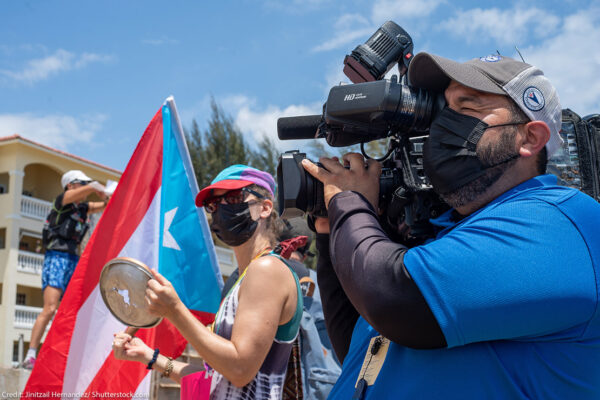California Supreme Court Ruling Strengthens Protections for Online Free Speech, ACLU Says
FOR IMMEDIATE RELEASE
CONTACT: media@aclu.org
In Barrett v. Rosenthal, Court Says Internet Service Providers Are Not Liable for Posting Opinions of Others
SAN FRANCISCO -- In a victory for free speech on the Internet, the California Supreme Court ruled today that no provider or user of an interactive computer service may be held liable for putting material on the Internet that was written by someone else. In doing so, the Court overruled an earlier decision by the Court of Appeal.
Today's ruling affirms that blogs, websites, listservs, and ISPs such as Yahoo!, as well as individuals such as defendant Ilena Rosenthal, are protected under Section 230 of the federal Communications Decency Act (CDA), which explicitly states that "[n]o provider or user of an interactive computer service shall be treated as the publisher or speaker of any information provided by another information content provider."
"By reaffirming that Congress intended to grant protection under Section 230 to those who provide a forum for the views of others, the Court has ensured that the Internet will remain a vibrant forum for debate and the free exchange of ideas," said Ann Brick, a staff attorney at the American Civil Liberties Union of Northern California, which filed a brief in the case. "Any other ruling would have inevitably made speech on the Internet less free."
The lawsuit, Barrett v. Rosenthal, concerned postings on Internet newsgroups by Ilena Rosenthal, head of an international support group for women harmed by breast implants, who was one of several defendants in this high-profile Internet defamation case. In 2001, the Alameda Superior Court found that Section 230 of the CDA protected Rosenthal from liability for her republication on the Internet of a document written by someone else.
Section 230 has been an important means of encouraging the growth of a wide variety of "forum" sites on the Internet, including websites, listservs, and newsgroups. Sometimes these sites are hosted by large ISPs such as Yahoo! or America Online, but just as often they are hosted by an individual who simply wants to provide an opportunity for others to express their views on a particular subject.
The issue raised in the case was whether Section 230's protection applies to individuals who frequently use the Internet to pass on information obtained elsewhere, whether by forwarding an e-mail written by someone else or, in this case, posting an email from someone else to a newsgroup.
The ACLU of Northern California and the Electronic Frontier Foundation (EFF) filed a friend-of-the-court amicus brief in the California Supreme Court arguing that Section 230 means what it says and applies to "users" of interactive computer services as well as "providers."
"Courts have consistently interpreted Section 230 to provide broad protections for the platforms upon which free speech has flourished online," said EFF Staff Attorney Kurt Opsahl. "By reversing the Court of Appeal, the California Supreme Court has brought California back in line with other jurisdictions and reaffirmed the critical rule that the soapbox is not liable for what the speaker has said."
In January 2004, the Court of Appeal for the First District overruled the dismissal of a defamation lawsuit filed against an activist for her re-publication on the Internet of someone else's words. The court refused to extend any protection under Section 230, which was expressly enacted "to promote the continued development of the Internet and other interactive computer services," in a manner "unfettered by Federal or State regulation."
"The Supreme Court's opinion strengthens protection for speech on the Internet," said Mark Goldowitz, director of the California Anti-SLAPP Project and counsel for Rosenthal. "Justice Corrigan's opinion protects against the 'heckler's veto' chilling speech on the Internet."
The decision is online at: www.aclunc.org/news/press_releases/asset_upload_file605_4198.pdf
The ACLU/EFF legal papers are online at: www.aclunc.org/cases/cases_to_watch/barrett_v._rosenthal.shtml


